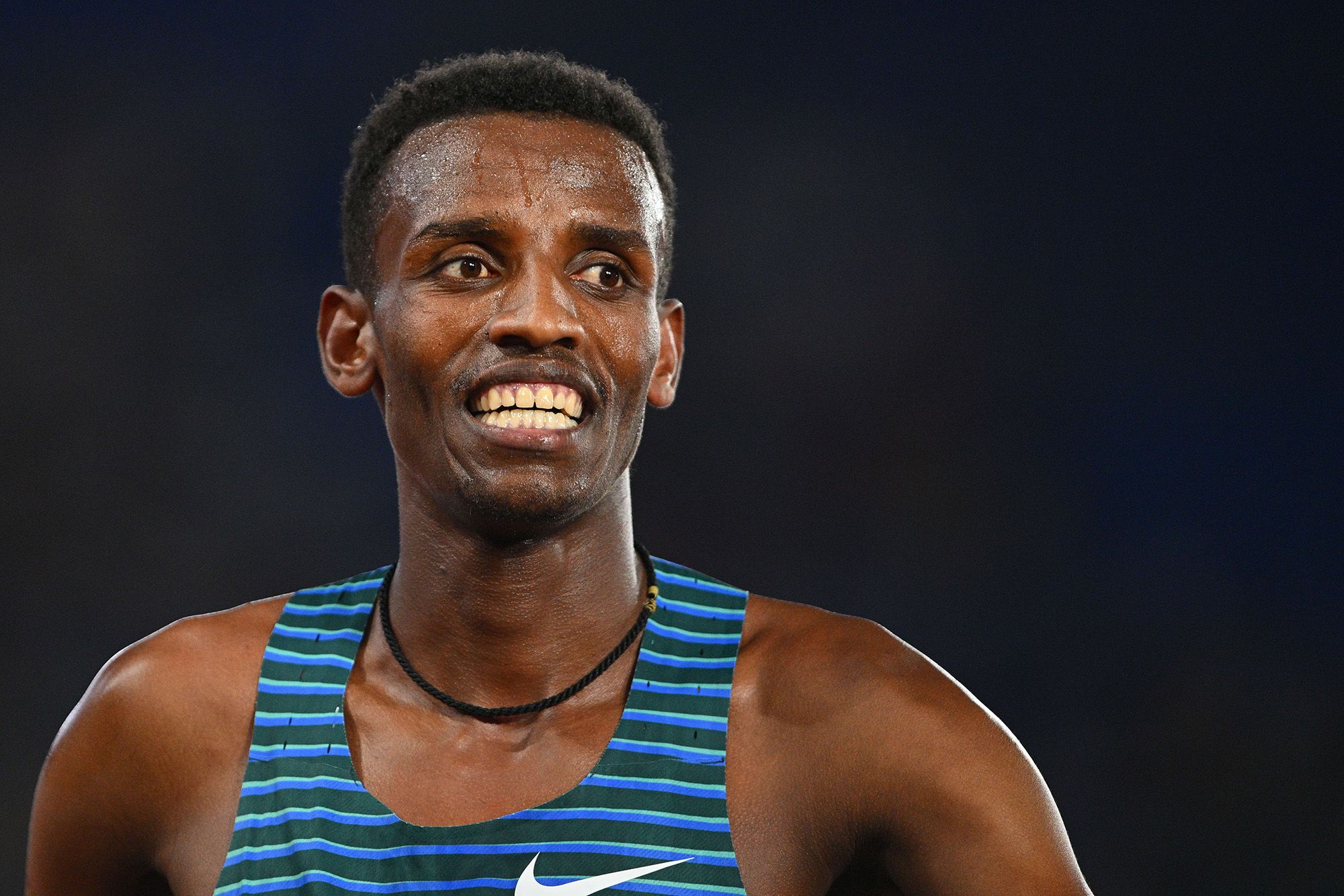Girma’s Political Career and Legacy: Ethiopia Girma

Girma Wolde-Giorgis, a figure whose political career spanned decades, left an indelible mark on Ethiopian history. He navigated the tumultuous waters of Ethiopian politics, rising through the ranks to become the country’s president during a period of significant transformation. His political journey, marked by both successes and challenges, is a fascinating case study in Ethiopian leadership.
Girma’s Rise to Power and Role in Ethiopian Politics
Girma’s political career began in the 1960s, during the reign of Emperor Haile Selassie. He served in various ministerial positions, demonstrating his administrative acumen and political savvy. He was a member of the Ethiopian People’s Revolutionary Party (EPRP) during the Derg regime and later served as the Minister of Foreign Affairs under the transitional government led by Mengistu Haile Mariam. This experience provided him with valuable insights into the complexities of Ethiopian politics and the challenges of governing a diverse nation.
After the fall of the Derg regime in 1991, Girma remained active in Ethiopian politics. He served as the Speaker of the House of People’s Representatives, a position that solidified his reputation as a respected and influential figure. In 2001, he was elected as the President of Ethiopia, a role he held until 2013.
Key Policies and Their Impact on Ethiopia, Ethiopia girma
Girma’s presidency was marked by a period of relative stability and economic growth. He played a crucial role in fostering national unity and reconciliation following the civil war that had ravaged the country. He also championed the development of infrastructure, education, and healthcare, contributing to the country’s progress.
Comparison with Other Ethiopian Leaders
Girma’s leadership style was characterized by a calm and measured approach. He was known for his diplomacy and his ability to build consensus among diverse political factions. His approach contrasted with the more authoritarian styles of previous leaders, such as Mengistu Haile Mariam. Girma’s emphasis on dialogue and compromise contributed to a more stable political environment in Ethiopia.
Political Alliances and Rivalries
Girma’s political career was marked by both alliances and rivalries. He was a close ally of Prime Minister Meles Zenawi, who led the country from 1991 to 2012. Their partnership played a significant role in stabilizing Ethiopia and guiding the country through a period of transition. However, Girma also faced challenges from within his own party, the Ethiopian People’s Revolutionary Democratic Front (EPRDF). His political opponents criticized his perceived lack of assertiveness and accused him of being too accommodating to the ruling party.
Girma’s Impact on Ethiopia’s Development

Girma Wolde-Giorgis’s tenure as President of Ethiopia, from 2001 to 2018, coincided with a period of significant economic and social transformation in the country. While his role as President was largely ceremonial, his influence extended beyond the confines of the presidency, impacting policy decisions and contributing to the broader development agenda. This section delves into the key reforms implemented during Girma’s time in office, examining their successes and challenges, and analyzing their impact on different sectors of Ethiopian society.
Economic Reforms and Development
Girma’s presidency witnessed a period of sustained economic growth in Ethiopia. This was largely attributed to the government’s commitment to implementing structural reforms aimed at attracting foreign investment, promoting industrialization, and diversifying the economy. The government’s focus on infrastructure development, particularly in the areas of transportation, energy, and telecommunications, played a crucial role in facilitating economic growth.
- Growth and Investment: Ethiopia experienced impressive economic growth rates during Girma’s presidency, averaging over 10% annually for several years. This growth was fueled by significant investments in infrastructure, agriculture, and manufacturing. The government’s focus on attracting foreign direct investment (FDI) proved successful, with Ethiopia becoming a major destination for investors from China, India, and other countries.
- Infrastructure Development: Recognizing the importance of infrastructure in driving economic growth, the government invested heavily in building new roads, railways, airports, and power plants. The construction of the Ethiopia-Djibouti railway, a major infrastructure project, was completed during Girma’s tenure, facilitating trade and transportation between the two countries.
- Industrialization: The government implemented policies aimed at promoting industrialization, with a focus on manufacturing, textiles, and agro-processing. The creation of industrial parks, such as the Hawassa Industrial Park, attracted foreign companies and created employment opportunities for Ethiopians.
- Agriculture: Agriculture remained the backbone of the Ethiopian economy, employing a large percentage of the population. The government focused on improving agricultural productivity through initiatives such as the Agricultural Growth Programme (AGP), which aimed to increase crop yields and promote smallholder farmer development.
Social Reforms and Development
While economic growth was a key focus, Girma’s presidency also witnessed significant social reforms aimed at improving the lives of Ethiopians. These reforms addressed issues such as education, healthcare, and gender equality.
- Education: The government prioritized education, expanding access to primary and secondary education for children across the country. The number of schools and teachers increased significantly, and the literacy rate rose steadily.
- Healthcare: The government invested in improving healthcare infrastructure and expanding access to medical services, particularly in rural areas. The number of hospitals and health centers increased, and the government introduced programs to combat communicable diseases.
- Gender Equality: The government implemented policies to promote gender equality, with a focus on empowering women and girls. These policies included measures to increase female participation in education, employment, and political life.
Impact on Different Sectors of Ethiopian Society
Girma’s policies had a profound impact on different sectors of Ethiopian society. The economic reforms, particularly the focus on infrastructure development and industrialization, led to significant job creation and reduced unemployment. The government’s commitment to education and healthcare resulted in improvements in literacy rates, life expectancy, and overall well-being.
- Rural Communities: The government’s investment in infrastructure, such as roads and power plants, benefited rural communities by improving access to markets, education, and healthcare. The Agricultural Growth Programme aimed to improve agricultural productivity, which directly impacted the livelihoods of farmers in rural areas.
- Urban Areas: The focus on industrialization and urbanization led to the growth of cities and towns, creating new job opportunities and attracting migrants from rural areas. However, this growth also brought challenges such as increased pressure on infrastructure and housing.
- Women: The government’s policies aimed at promoting gender equality had a positive impact on women’s lives. The increased access to education and employment opportunities empowered women and enabled them to participate more fully in the economy and society.
Timeline of Major Development Projects
Girma’s presidency saw the implementation of several major development projects that had a lasting impact on Ethiopia’s development trajectory. Here is a timeline of some of the key projects:
| Year | Project | Description |
|---|---|---|
| 2003 | Ethiopia-Djibouti Railway | Construction of a new railway line connecting Ethiopia to the port of Djibouti, facilitating trade and transportation. |
| 2007 | Grand Ethiopian Renaissance Dam (GERD) | Construction of a hydroelectric dam on the Blue Nile River, aimed at generating electricity for Ethiopia and neighboring countries. |
| 2010 | Hawassa Industrial Park | Establishment of a special economic zone dedicated to manufacturing, attracting foreign investment and creating employment opportunities. |
| 2014 | Addis Ababa Light Rail Transit | Launch of the first light rail system in Ethiopia, improving public transportation in the capital city. |
Girma’s International Relations and Diplomacy

Girma Wolde-Giorgis’s diplomatic approach was characterized by a commitment to fostering peaceful relations and promoting Ethiopia’s interests on the global stage. He sought to strengthen existing partnerships and forge new ones, prioritizing regional stability and economic development. His foreign policy, marked by a pragmatic and inclusive approach, aimed to navigate complex geopolitical landscapes while safeguarding Ethiopia’s national interests.
Girma’s Foreign Policy Approach and its Impact on Ethiopia’s Relationships with Other Countries
Girma’s foreign policy approach aimed to balance Ethiopia’s interests with its regional and global commitments. His diplomacy emphasized a peaceful resolution of conflicts, a commitment to international law, and the promotion of economic cooperation. This approach resulted in the strengthening of Ethiopia’s relationships with various countries, including its neighbors in the Horn of Africa, key international partners like the United States and China, and international organizations such as the African Union. Girma’s diplomatic efforts played a significant role in resolving regional conflicts and fostering economic integration within the Horn of Africa. His commitment to international cooperation contributed to Ethiopia’s growing global presence and influence.
Comparison of Girma’s International Engagements with Those of Previous Ethiopian Leaders
Girma’s diplomatic approach differed significantly from that of his predecessors, particularly in its emphasis on regional integration and economic cooperation. Unlike some earlier leaders who focused on ideological alliances, Girma prioritized pragmatic partnerships that served Ethiopia’s national interests. He actively engaged with neighboring countries to address shared challenges and promote regional development. This approach marked a departure from the more assertive foreign policy of some previous Ethiopian leaders, who often pursued a more ideological and interventionist approach in regional affairs.
Key International Partnerships Formed under Girma’s Leadership
Girma’s leadership witnessed the formation of several key international partnerships, including:
- Strengthened Relations with the United States: Girma’s tenure saw a significant strengthening of ties with the United States, particularly in the areas of security cooperation, economic development, and democratic reforms. This partnership was crucial in supporting Ethiopia’s development agenda and enhancing its global standing.
- Growing Partnership with China: Ethiopia’s relationship with China deepened during Girma’s presidency, marked by increased trade, investment, and infrastructure development. This partnership played a vital role in Ethiopia’s economic growth and infrastructure development, particularly in sectors like energy, transportation, and manufacturing.
- Active Engagement with the African Union: Girma played a prominent role in the African Union, advocating for peace and stability in the continent. His commitment to regional integration and the promotion of African solutions to African problems strengthened Ethiopia’s leadership within the AU.
Girma’s Role in Shaping Ethiopia’s International Image and Reputation
Girma’s diplomatic efforts contributed significantly to shaping Ethiopia’s international image and reputation. His commitment to peace, development, and international cooperation helped project a more positive and constructive image of Ethiopia on the global stage. His leadership in regional affairs, particularly in resolving conflicts and promoting economic integration, enhanced Ethiopia’s standing as a responsible and influential player in the Horn of Africa.
Ethiopia girma – Ethiopian coffee, man, that’s the real deal. You know, after a long day of hustling, you just wanna kick back and relax. That’s where the rolland leather reclining club chair comes in handy, you know? Imagine, sipping on that strong Ethiopian brew while sinking into the plush leather.
It’s the perfect way to unwind and appreciate the finer things in life, just like those Ethiopian coffee ceremonies.
Ethiopia Girma, with his soulful vocals and captivating melodies, always reminds me of a certain kind of timeless elegance. You know, like the kind of classic beauty you find in a Pasadena Italian leather chair – handcrafted, luxurious, and built to last.
Girma’s music, just like that chair, has a way of making you feel comfortable and at home, no matter where you are in the world.